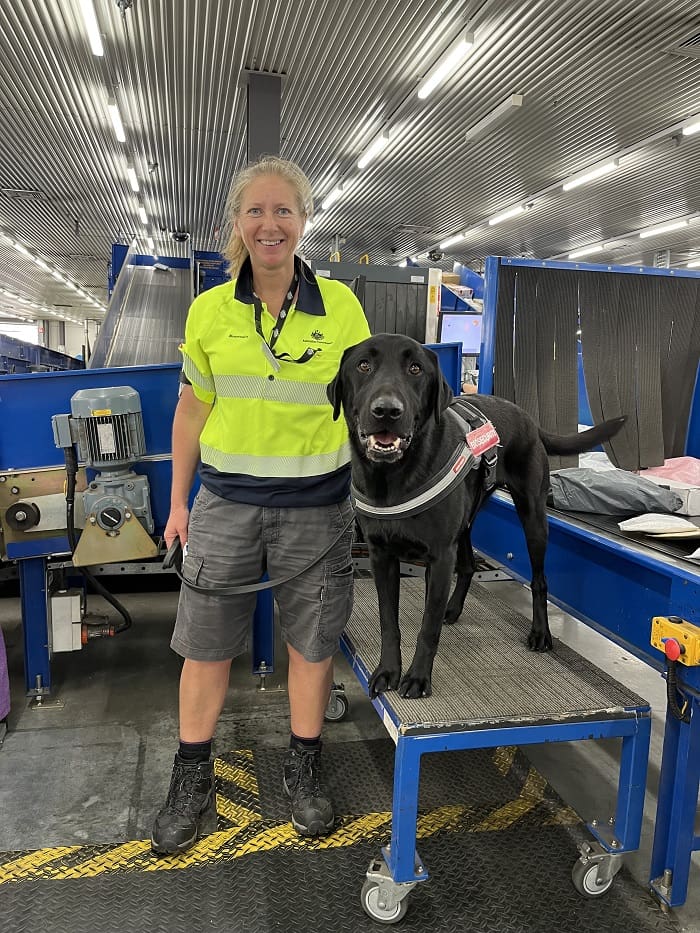
Sam Watson and top biosecurity detector dog Qubit.
AUSTRALIA’S top biosecurity detector dog last year made 126 interceptions of goods with the potential to carry Foot and mouth Disease.
Top dog, four year-old black Labrador Qubit, with handler Sam Watson made the most FMD-risk item interceptions among the 765 individual risk items they seized during the year.
In 2022, biosecurity detector dogs screened 6.2 million mail items and over 850,000 travellers entering Australia, intercepting about 10,700 mail articles and 14,600 travellers carrying biosecurity risk items.
The detector dog who intercepted the broadest range of risk items was Vespa, who made 635 detections across 124 different commodities. The rookie dog of the year was Emma in Sydney, who achieved the most seizures within five months of graduation – 278 items — equating to almost three seizures per operational work day.
Acting secretary of the department and acting director of biosecurity, Dr Chris Locke, said the department awards the ‘Top Dog’ title to a detector dog and handler team who have significantly contributed to Australia’s biosecurity efforts.
The 2022 title was given to Qubit and handler Sam for their contribution to protecting Australia against biosecurity threats including FMD in Melbourne Airport and the Melbourne Mail Gateway.
“Qubit and Sam sniffed out and seized more FMD risk material—meat and dairy products—than any other biosecurity dog team last year.
“Together they intercepted 126 products with the potential to carry FMD and seized 765 individual biosecurity risk items,” Dr Locke said.
“In 2022 we saw the threat of FMD and Lumpy Skin Disease grow as it was detected in our near neighbour, Indonesia.
“In response, the biosecurity detector dog program expanded the detector dog target odours to include dairy products, which have a greater risk of carrying exotic diseases including FMD,” he said.
“The department currently has 46 Labradors working as biosecurity detector dogs across Australia’s international airports, mail centres and seaports.
“This will increase to 62 Labradors over the next two years,” Dr Locke said.
“Biosecurity detector dogs are a vital part of our biosecurity defence at the border.
“They are teamed with our detector dog handlers, who are biosecurity officers with specialised skills to effectively train and deploy a detector dog.”
“Together, they do a great job of protecting Australia alongside the other measures we deploy to mitigate risk of exotic pests and diseases.”

HAVE YOUR SAY